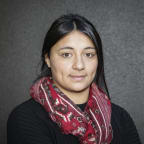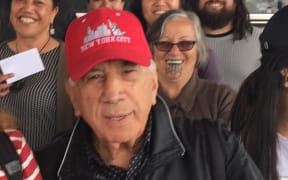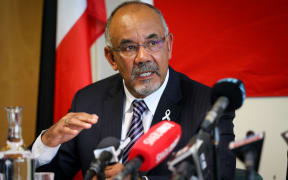A new study is encouraging Māori immersion schools to start introducing English to students' lessons earlier - and not leave it until secondary school.
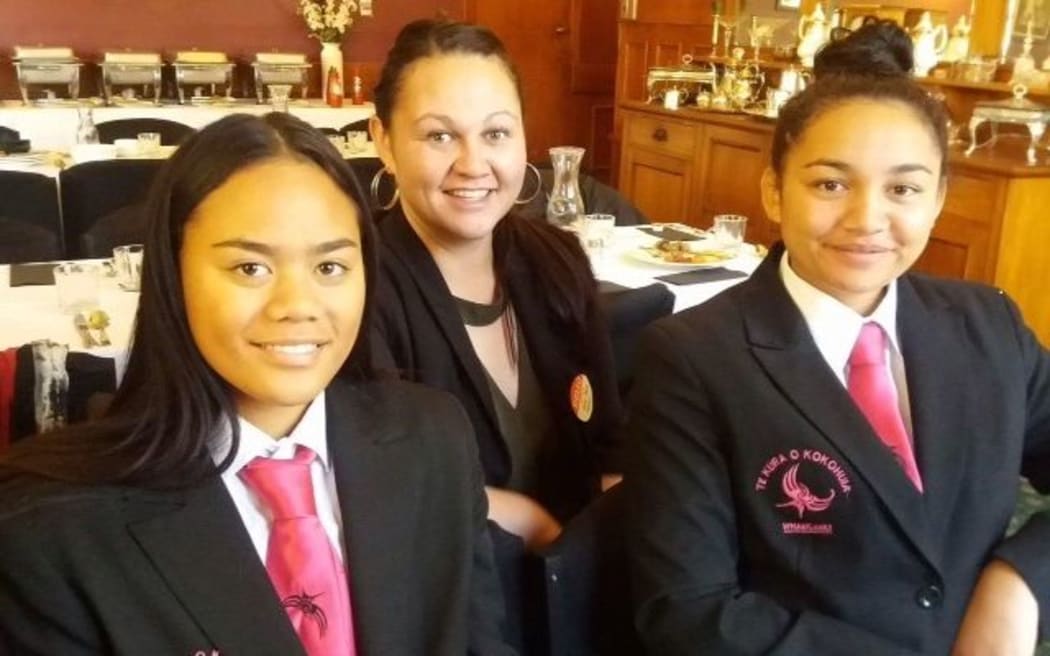
Misty Harrison, centre, with her two nieces Ngawai Kowhai Harrison, left, and Te Waiata Harrison Mason. Photo: Supplied / Facebook
The University of Auckland's Dr Sophie Tauwehe Tamati, who is behind the research, said incorporating English when kura kaupapa students were 11 years old could stop the tide of students leaving kura for mainstream high schools.
Students at Te Kura o Kokohuia in Whanganui, for example, don't start learning English until they hit Year 9, which is the first year of high school.
Misty Harrison is a teacher at the kura and said this was the way it should be.
"It is really pivotal to us within these Māori learning environments to encourage te reo Māori at all times, because they are actually learning English at every other place in their life except kura."
But waiting this late is what Dr Tauwehe Tamati is trying to challenge.
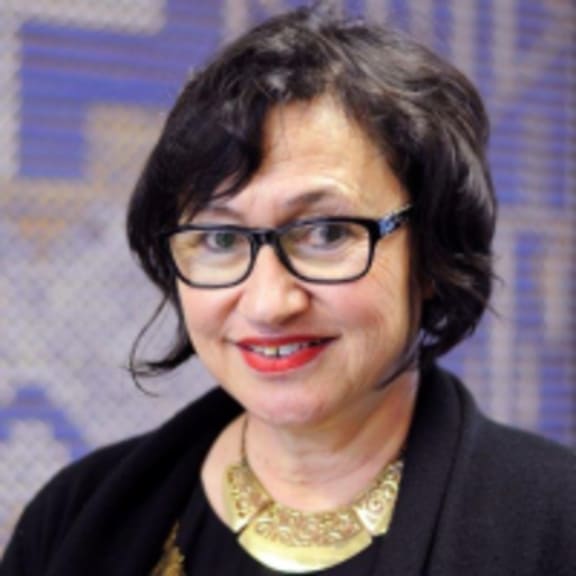
Dr Sophie Tauwehe Tamati Photo: University of Auckland
Her research found that kura kaupapa students were better off having some English from Year 7.
This would ensure the child was stronger in both languages, she said.
"I had a hunch that a bilingual child or a bilingual learner would use what they already know in their stronger language to improve, and that way accelerate, what they need to know in the target language."
Ms Tauwehe Tamati has created a teaching method where kura kaupapa students read Māori stories and then rewrite them in English, and vice versa.
She tested two kura kaupapa and, after eight weeks, found those students had improved their English literacy at a rate that was almost six times faster than a similar group in a high-decile mainstream school.
She said her teaching method, called trans-acquisition, really did work.
"It actually proves that, without a doubt, bilingual children using this particular teaching approach were capable of achieving accelerated rates of English literacy."
She said it would curb the tide of students leaving Māori immersion and going to mainstream schools.
But Te Rūnanga Nui O Ngā Kura Kaupapa Māori chair Cathy Dewes was not convinced.
Introducing English sooner did not support the kura kaupapa objective, she said.
"I don't think that we should change our immersion approach because what we are all about is Māori language, and building the space for Māori language in Aotearoa.
"If we don't do this we will be, as Kingi Ihaka put it in his karakia many, many years ago, as moa and we will become extinct."
Ms Dewes said those who chose to go to wharekura, or Māori immersion high schools, needed to trust that it wouldn't set them back in the future.
"Our graduates have been totally immersed in Māori, all subjects - calculus, physics, biology, history, all totally in Māori," she said.
"Then they graduate and they follow whatever path they want to follow, and they still have sufficient English."
But Ms Tauwehe Tamati said the results spoke for themselves.
She was in the process of publishing her thesis as a book for teachers here in New Zealand and overseas.
